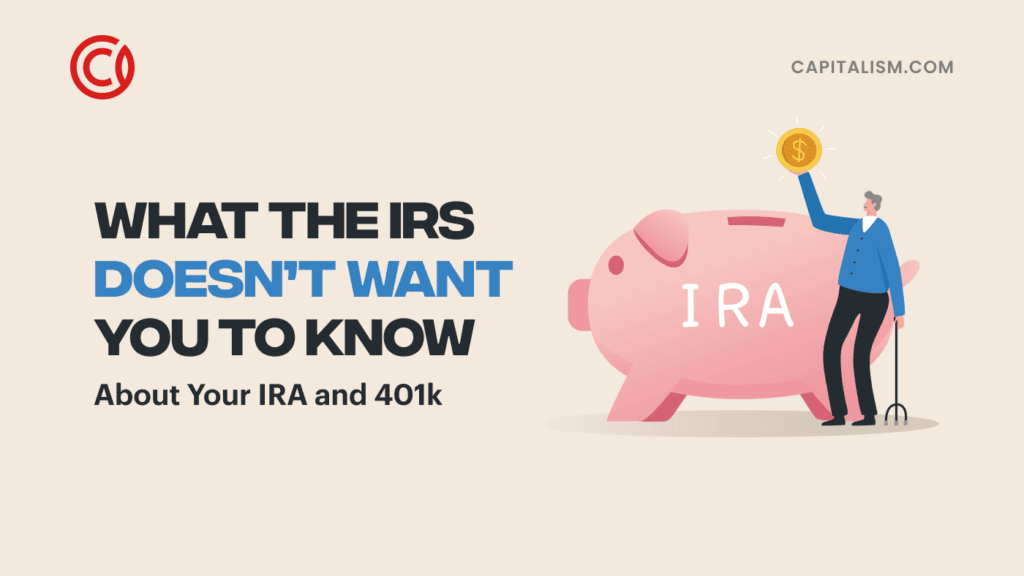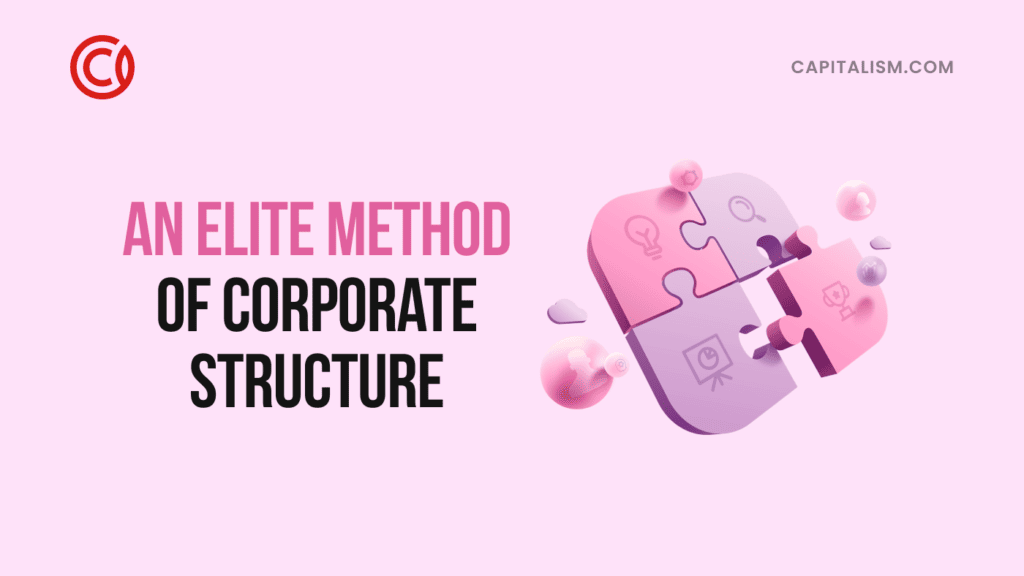Discover the Economic Plans Other People Have for Your Money
To say this election cycle is a strange one is an understatement. Yet it’s probably not any stranger than normal. Whatever your political leanings are, there’s a lot to consider before you pull the lever in the voting booth. The candidates could not differ much more on their stances on social issues, the military, and the criminal justice system. But there’s one more sphere to consider - especially for entrepreneurs: the candidates’ economic plans. Let’s take a look.
But first, you may find this surprising…
Now, What Parties Are Running for President in 2020?
Ever wonder why we call them “parties?” Some say it’s because they “party” with our money. Yes, dear taxpayer, nothing is government-funded. Everything is taxpayer-funded.
The Republicans have Donald Trump and Mike Pence. Democrats are running Joe Biden and Kamala Harris. The Libertarians are pulling for Jo Jorgensen and Spike Cohen (on all 50 states this election season). An honorable mention, the Green Party has Howie Hawkins and Angela Walker (but only made it onto 30 states’ ballots).
Let’s look at each of the presidential candidates on taxes.
What Republicans Will Run in 2020?
In the red corner, President Donald J. Trump and Vice President Mike Pence will top the Republican ticket.
What Are Trump's Economic Plans?
“Every decent man is ashamed of the government he lives under.” - Mencken
Back in September 2016, candidate Donald Trump said the following:
“They’re keeping the rates down so that everything else doesn’t go down,” Trump said in response to a reporter’s request to address a potential rate hike by the Federal Reserve in September. “We have a very false economy,” he said.
“At some point the rates are going to have to change,” Trump, who was campaigning in Ohio on Monday, added. “The only thing that is strong is the artificial stock market.”
Hard money economists clapped with glee thinking, “One of ours is finally going to get in there!”
Alas, that wasn’t the case. Candidate Trump became President Trump... And President Trump finally came to, as Real Estate Magnate Trump reminded him how much he loved low interest rates.
You can’t completely blame him, though. He tried to raise rates. He even brought in Jay Powell - a real businessman - not a PhD in Economics - to run the Fed for him. Powell raised rates from 0.5%-0.75% all the way to 2.25%-2.5% at the beginning of 2019. But almost inevitably, the stock market puked.
So Powell is cornered. Trump and he will likely continue to use CTRL+P monetary policy for the foreseeable future... especially in the wake of the government-mandated private sector shutdown known as COVID-19.
At least he signed executive orders to extend COVID-19 economic relief, which includes unemployment benefits and an eviction moratorium.
The Trump Tax Plan
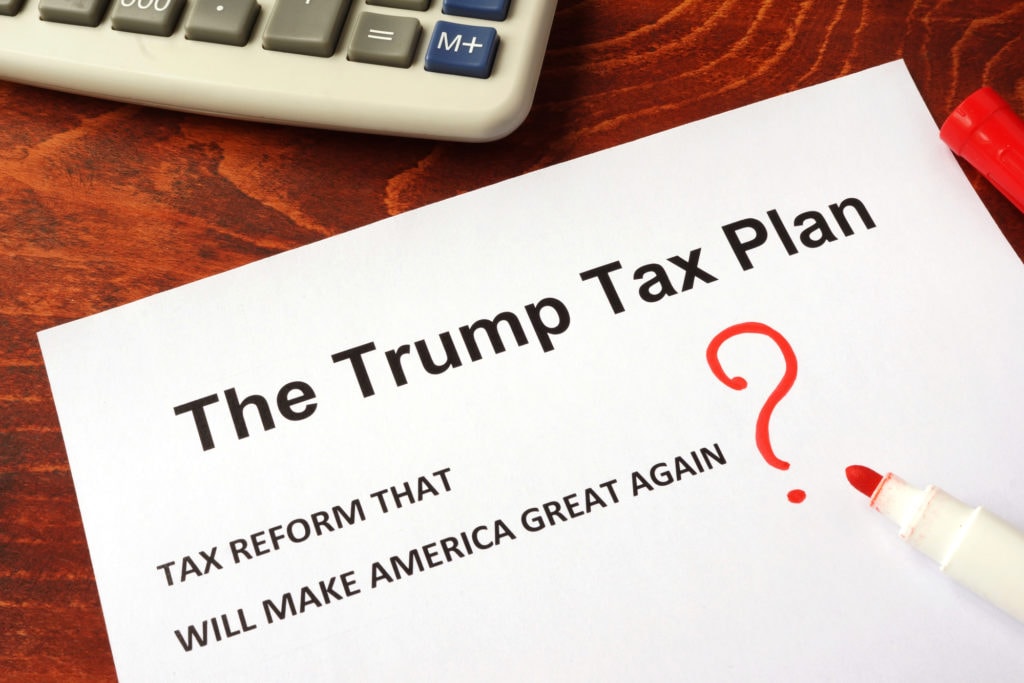
On the direct taxation side, Trump has been vague concerning his 2020 election policies. For personal income tax purposes, he proposes:
- An unspecified tax cut to boost take-home pay.
- An unspecified “Made in America” tax credit.
- Expanding Opportunity Zones, a program created under the Tax Cuts and Jobs Act of 2017 to spur investment in economically distressed census tracts.
His agenda also outlines two policy proposals for companies that bring back jobs from China:
- An unspecified tax credit for companies.
- Allowing 100 percent expensing for certain industries (pharmaceuticals and robotics) that bring manufacturing back to the United States.
President Trump and his advisers have also vaguely called for several other policies.
The president has called for forgiveness for the September 1 through December 31, 2020 employee-side payroll tax deferral and permanent cuts to the payroll tax.
Additionally, he mentioned - only mentioned - reducing the capital gains tax rate from 20 percent to 15 percent, as well as indexing capital gains to inflation.
Put succinctly, President Trump won’t directly tax you to oblivion, but his economic plan may inflate your savings away.
If President Trump’s plan doesn’t tickle your fancy, perhaps Joe Biden’s will…
What Democrats Will Run in 2020?
In the blue corner, we’ve got Joe Biden with his running mate, Kamala Harris.
What Are Biden's Economic Plans for America?
“When somebody says it’s not about the money, it’s about the money.” - Mencken
To his credit, Joe Biden’s tax plan is far more detailed than President Trump’s. But Biden crediting Elizabeth Warren with helping craft his new economic plan? Not so great.
Let’s start with the good news. Many thanks to our friends at the Tax Foundation for their excellent analysis.
- An $8,000 tax credit for childcare
- Equalizing the tax benefits of defined contribution retirement plans
- Expanding the Affordable Care Act’s premium tax credit

The Bad News About Biden’s Economic Plans
For individuals:
- A 12.4% Old-Age, Survivors, and Disability Insurance (Social Security) payroll tax on income earned above $400,000, evenly split between employers and employees.
- The top individual income tax rate for taxable incomes above $400,000 from 37% goes back to 39.6%.
- Taxes long-term capital gains and qualified dividends at the ordinary income tax rate of 39.6% on income above $1 million.
- Taxpayers in the higher than 28 percent brackets will see limited itemized deductions.
- Restores the Pease limitation on itemized deductions for taxable incomes above $400,000.
- Phases out the qualified business income deduction (Section 199A) for filers with taxable income above $400,000.
- Expands the Earned Income Tax Credit (EITC) for childless workers aged 65+; provides renewable-energy-related tax credits to individuals.
The clear message is this: don’t make over $400,000 in Biden’s USA.
It’s Especially Bad for Businesses
For businesses, Biden's economic plans will do the following:
- Increases the corporate income tax rate from 21% to 28%.
- Creates a minimum tax on corporations with book profits of $100 million or higher.
- Doubles the tax rate on Global Intangible Low Tax Income (GILTI) earned by foreign subsidiaries of US firms from 10.5% to 21%.
- Eliminating real estate industry tax loopholes, partially to pay for caregivers.
- Sanctions on tax havens and outsourcing.
My fellow One-Percenters, remember what UK author James Hannam writes in his excellent What Everyone Needs to Know About Tax:
“No matter what name is on the bill, all taxes are ultimately suffered by human beings.”
“Only people can pay tax.”
“Even corporation tax, which sounds like a tax on companies, is really suffered by shareholders, customers, and staff.”
That’s why it’s so easy for politicians like Joe Biden to go after you “evil” capitalists. The voters think he’s getting you, when he’s really getting them!
And if that wasn’t bad enough, President Trump actually said Biden plagiarized his plan!
If only Trump listened to Napoleon… "Never interrupt your enemy when he is making a mistake."
People have lots of questions about Biden’s campaign and economic plans. Here are some of the most frequently-asked.
How Many Times Has Biden Run for President?

“A good politician is quite as unthinkable as an honest burglar.” - Mencken
This is Biden’s third at-bat, with the first run in 1988 and second in 2008. That was before he joined Obama as the Vice Presidential candidate on his ticket.
Who ran for President three times and lost three times?
“Joe Biden” will likely be the answer to this question come November 4th. In the meantime, you’ll have to content yourself with this list of perennial candidates in the United States. Most notable is five-time loser Socialist Eugene Debs. (Don’t these guys ever take a hint?)
Ok, Let’s Look at the Libertarians…
“A cynic is a man who, when he smells flowers, looks around for a coffin.” - Mencken
Dr. Jo Jorgensen and Spike Cohen made it onto the ballot in 2020 on the Libertarian ticket. Many entrepreneurs gravitated towards this party because of its economic plans and stances. If you’ve ever heard, “Taxation is theft,” you probably know a Libertarian. You may even be one, and not know it! (Here’s a quiz you can take to find out.)
Discovering Austrian Economics is one of the great highs of being an entrepreneur. It’s unavoidable, since they are the only economists who took “the entrepreneur” into account. Imbibing the works of Mises, Rothbard, Hayek, and Hoppe makes one a better thinker, decision maker, and businessperson.
Our friends like Jeff Deist over at the Mises Institute provide most of the great texts as ebooks, free of charge.
The Marginal Revolution the Austrians kicked off is one of history’s great turning points, though we never learn about it in school. Most Austrian School economists would consider themselves libertarians.
Jo’s Promises and Economic Plans
“Men become civilized, not in proportion to their willingness to believe, but in proportion to their readiness to doubt.” - Mencken
"I will veto any spending bill that will lead to a deficit”
“As President, I will use my Constitutional authority to block any new borrowing. I will veto any spending bill that would lead to a deficit, and veto any debt ceiling increase. I will give every Cabinet secretary a specific spending reduction target to meet and hold them accountable. There is simply no excuse for sticking our children and grandchildren with the bill for these bipartisan bloated budgets.”
What’s not to like? But we currently live on planet Earth. And until Elon gets us all to Mars, we have to act like we’re going to be here for a while. Unlike Dick Cheney once said, deficits matter. But cutting your budget in the middle of a private sector shutdown is economic suicide.
“I will work tirelessly to slash federal spending”
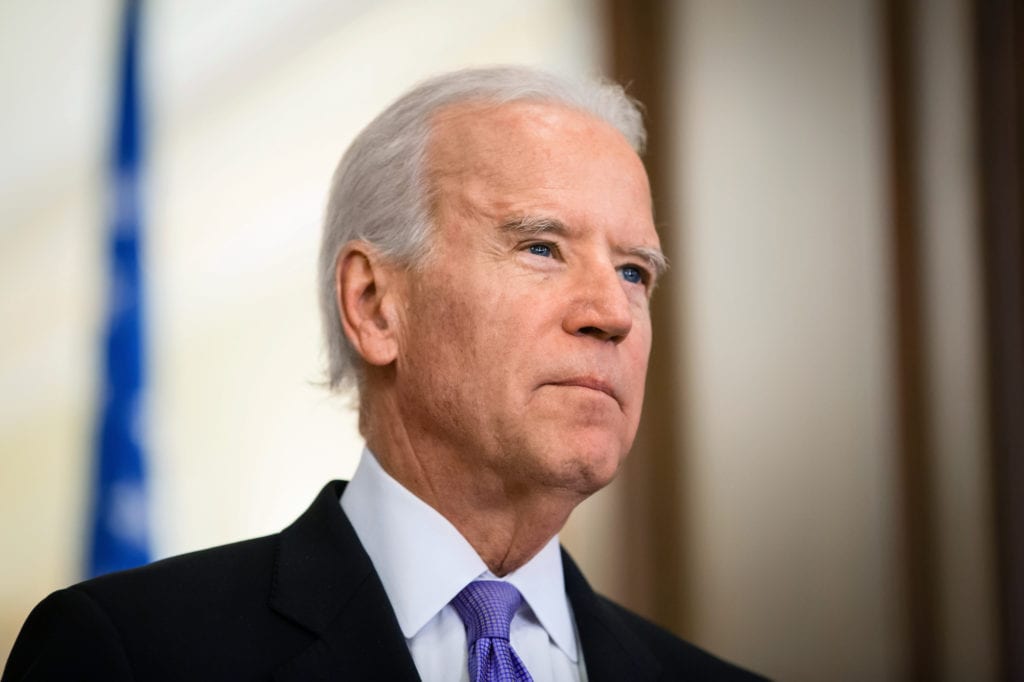
“Taxes are never voluntary – they are always paid under threat of punishment. If you fail to pay what government says you owe, you can be fined, have your wages garnished, assets seized, even go to prison. Voting for more government spending inevitably leads to higher taxes to pay for it – now, or in the future. As President, I will work tirelessly to slash federal spending, make government much, much smaller, and let you keep what you earn.”
Taxation is theft. Taxation is robbery. Yes, yes, yes. But, Jorgensen is very light on detail here. We could raise the same objection about her first point: you simply can’t cut spending right now when your government is forcing everyone to stay at home.
“I would work to implement a solution like Cato Institute's 6.2% solution”
“Do you trust politicians to keep their promises? I don’t. They’ve spent every cent in the Social Security Trust Fund on other spending, leaving behind worthless IOU’s. Other countries have successfully replaced their government-run systems with individual retirement accounts safe from greedy politicians. As President, I would work to implement a solution like the Cato Institute’s “6.2% solution”, which would allow any American the opportunity to “opt out” of the current system while making the current system fiscally stable for those who choose to remain.”
Who’s going to opt out of an entitlement? Answer: no one. This is a non-starter.
What Does It All Mean?
In the West - and especially America - we are blessed with the greatest economic system ever conceived. It’s called Capitalism, and it’s a damn superpower. Unfortunately, we forgot how that system was built, why it became so effective, and why it’s so important to preserve.
In his excellent book The Mystery of Capital, Hernando de Soto explores why the West is so successful at creating capital. He asserts what creates capital in the West is an implicit process buried in the intricacies of its formal property systems. It’s a fascinating book which reminds the reader how special our system is and how lucky we are to have it.
Briefly, here are de Soto’s property effects, which do not exist in most parts of the world:
- Fixing the economic potential of assets
- Integrating dispersed information into one system
- Making people accountable
- Making assets fungible
- Networking people
- Protecting transactions
If you want to really understand why what we’ve got is an amazing blessing, you can’t do better than to read this book.
The “Socialists” in America have not read Marx. They do not understand what went on behind the Iron Curtain. Also, they deny Aleksandr Solzhenitsyn’s truths about the gulags. Furthermore, they want power, pure and simple.
The Real Reason They Hate Capitalism
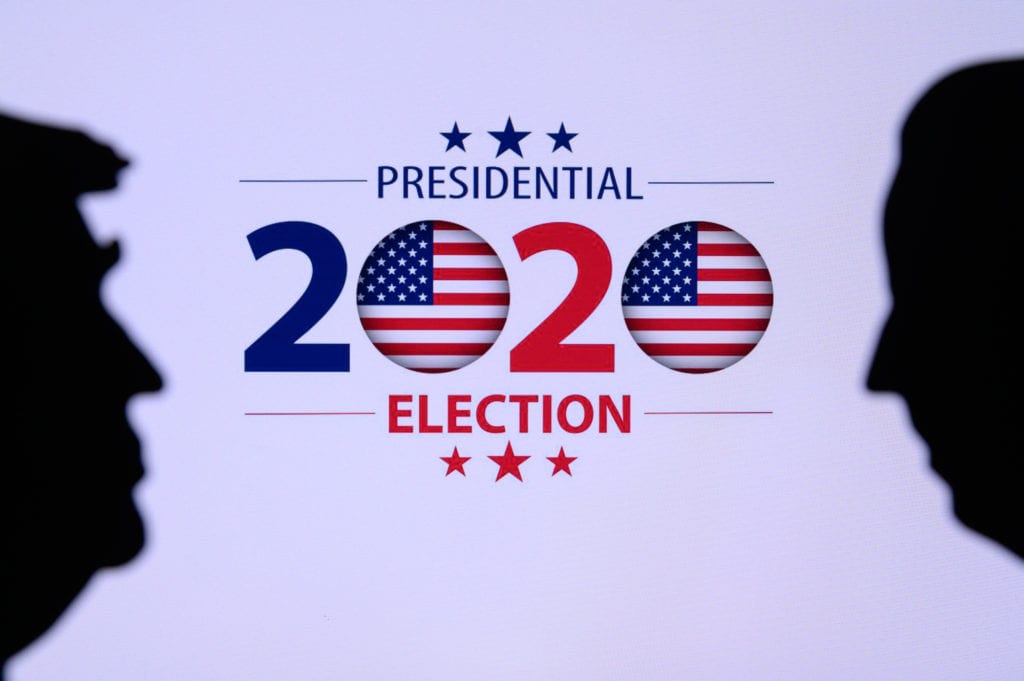
No one put their “why” better than Ludwig von Mises, in his excellent essay “The Anti-Capitalistic Mentality”:
What makes many feel unhappy under capitalism is the fact that capitalism grants to each the opportunity to attain the most desirable positions which, of course, can only be attained by a few. Whatever a man may have gained for himself, it is mostly a mere fraction of what his ambition has impelled him to win. There are always before his eyes people who have succeeded where he failed.
There are fellows who have outstripped him and against whom he nurtures, in his subconsciousness, inferiority complexes. Such is the attitude of the tramp against the man with a regular job, the factory hand against the foreman, the executive against the vice-president, the vice-president against the company's president, the man who is worth three hundred thousand dollars against the millionaire and so on. Everybody's self-reliance and moral equilibrium are undermined by the spectacle of those who have given proof of greater abilities and capacities. Everybody is aware of his own defeat and insufficiency.
In any other age, Trump would be a Democrat. He’s a statist and a protectionist. He hasn’t drained the swamp, nor has he built his wall. But he’s still a capitalist, and seems to be trying to lift the boot off the business owner’s throat. He certainly won’t soak the rich, as he’s rich himself.
But it’s your vote, so cast it where you may!
And one last little fact, especially if you’re bigly optimistic on The President’s re-election...
Has Any President Ever Won All 50 States?
No, but Ronald Reagan came the closest in 1984. He only lost 10 electoral votes from Minnesota and another three from the DC swamp. The rest of the map was Republican red.
So, Now What?
Never before has the truth been clearer to see. No candidate’s economic plans have the power to take care of us. It’s up to us to take care of ourselves and our communities.
And that’s really GOOD news!
Why? Because there is nobody like you who takes ownership of the world’s problems. Nobody gets as creative and innovative as you do in the search for solutions. And nobody creates positive change as powerfully as you do.
That’s why we throw our support 100% behind YOU, the entrepreneur.
There’s never been a better time to take hold of your own financial future by building a hugely successful business of your own. By creating your own economic strength, you can make a real difference in the world rather than wishing and hoping for someone else to take care of you.
If you’re ready to take control of your financial future, we’ve got something that will help you get started. We put our best training in one place, a video series that will walk you through the steps of building a successful business of your own. It’s absolutely free, our gift to you… so you can create positive change, too. Start right here.




